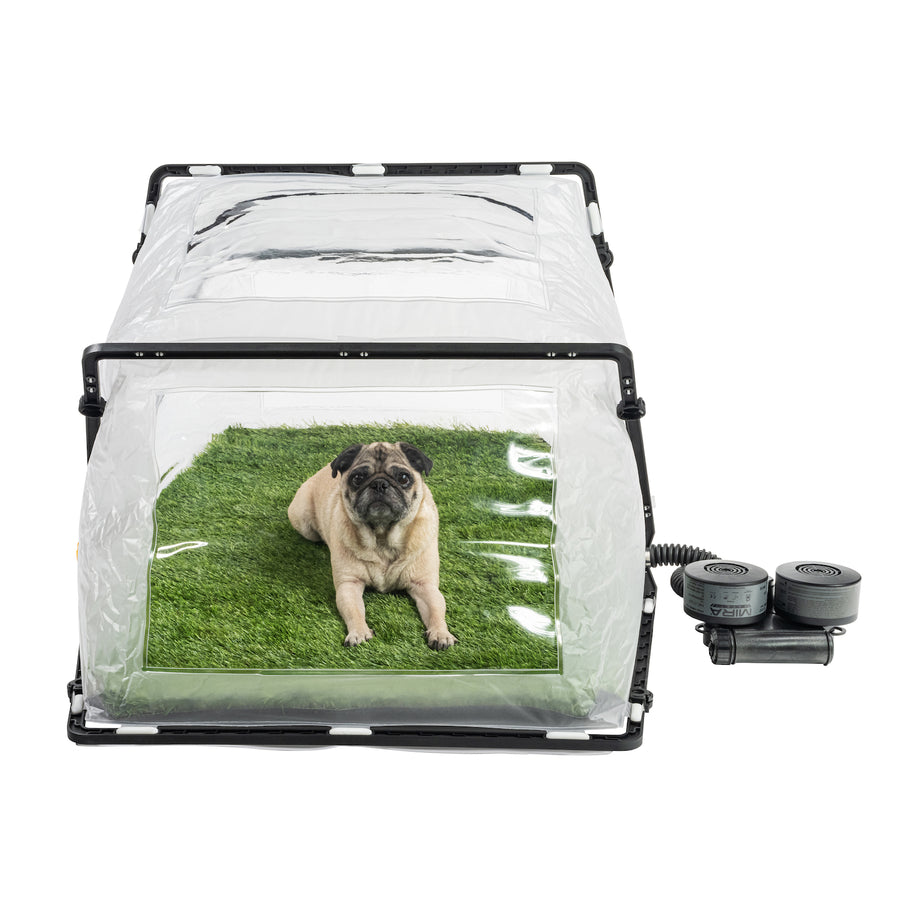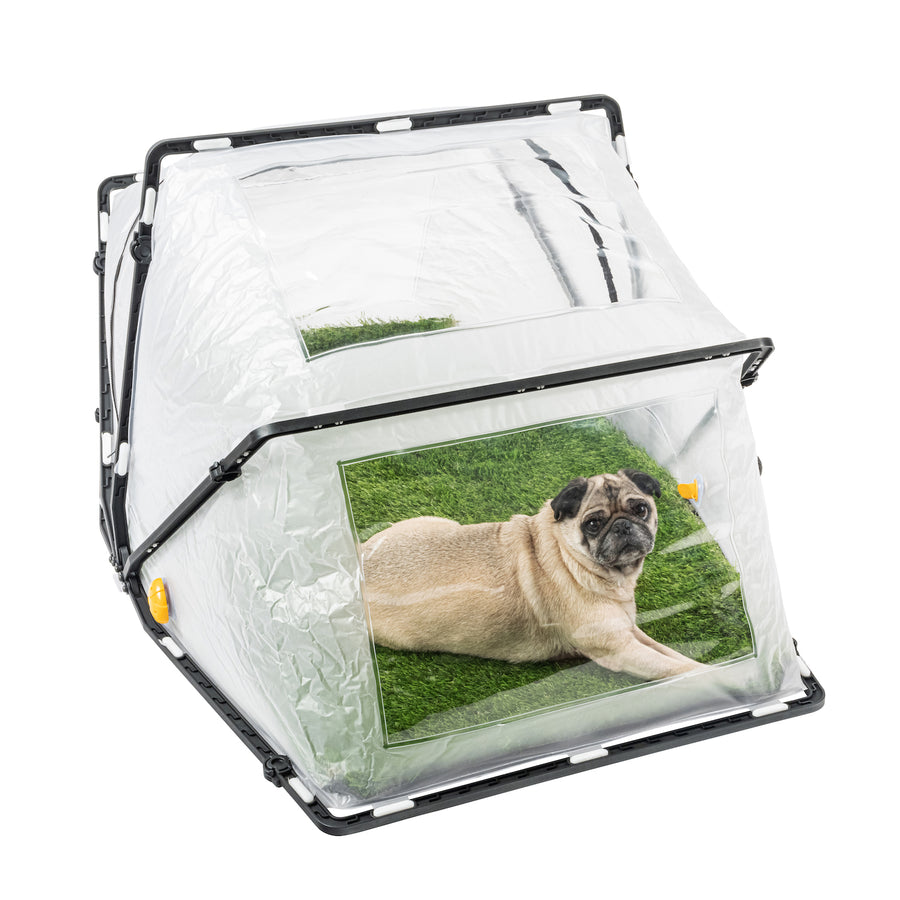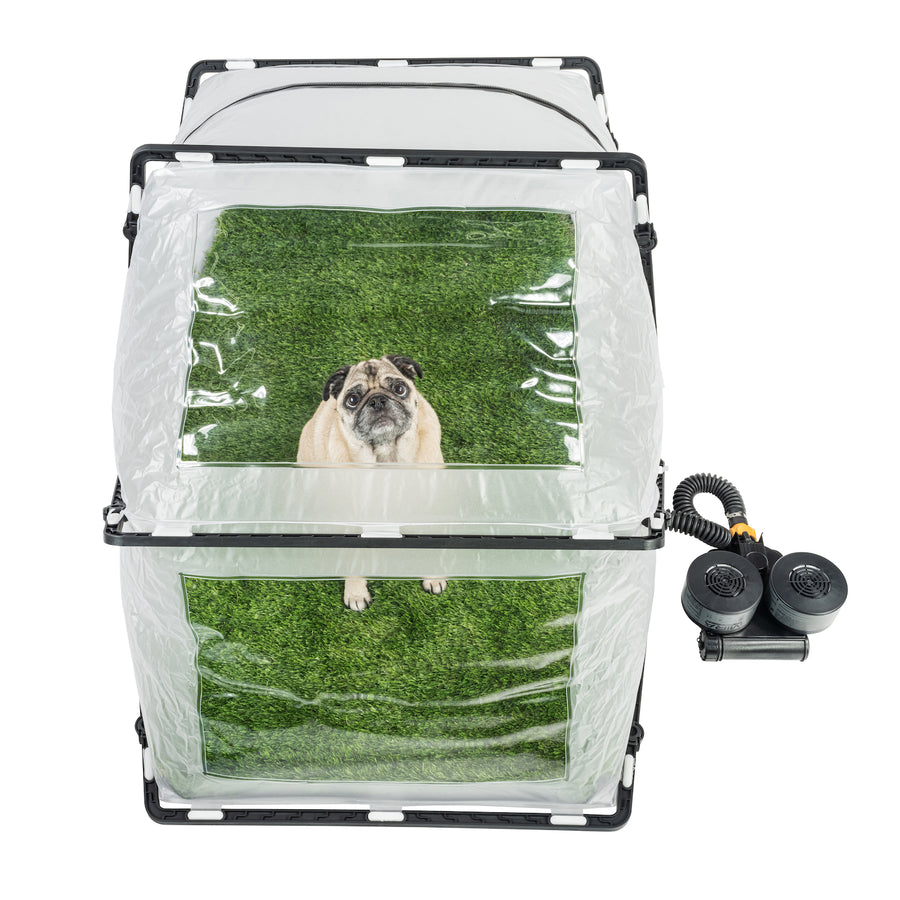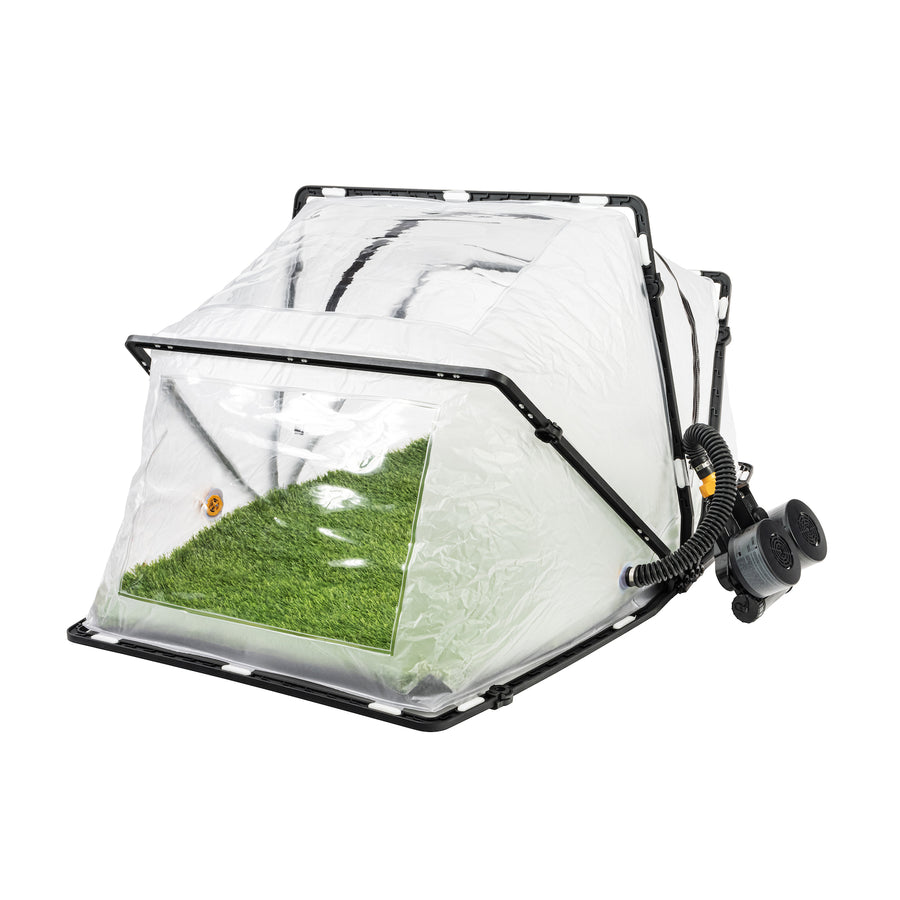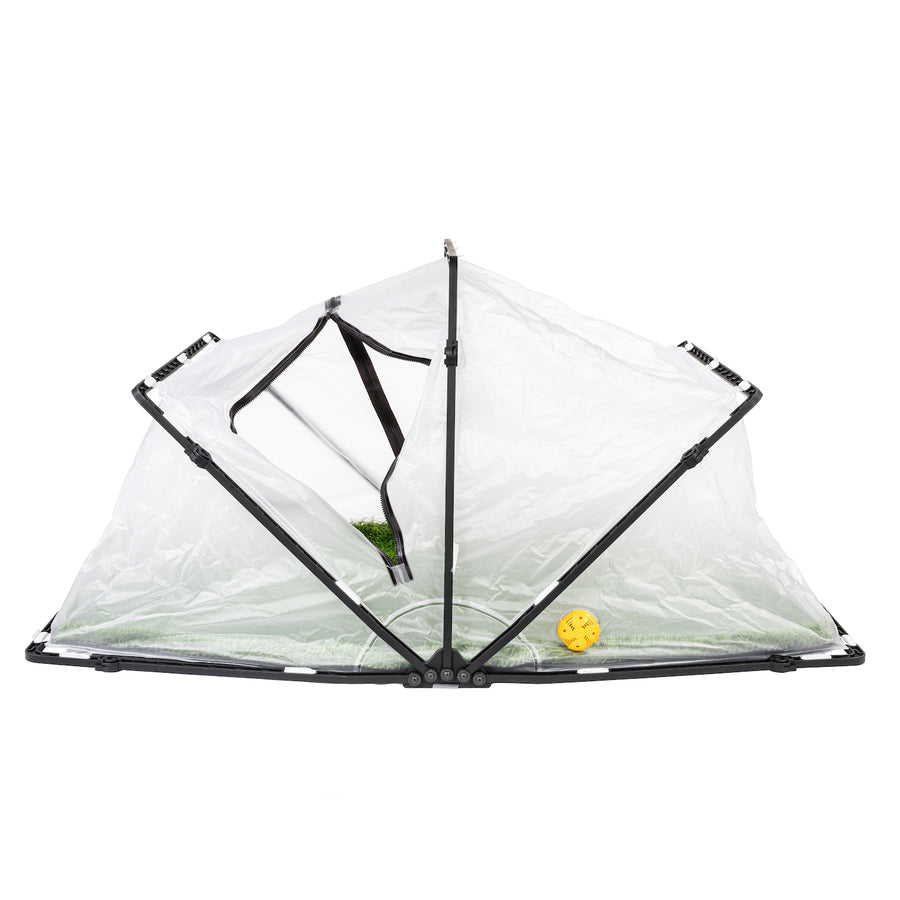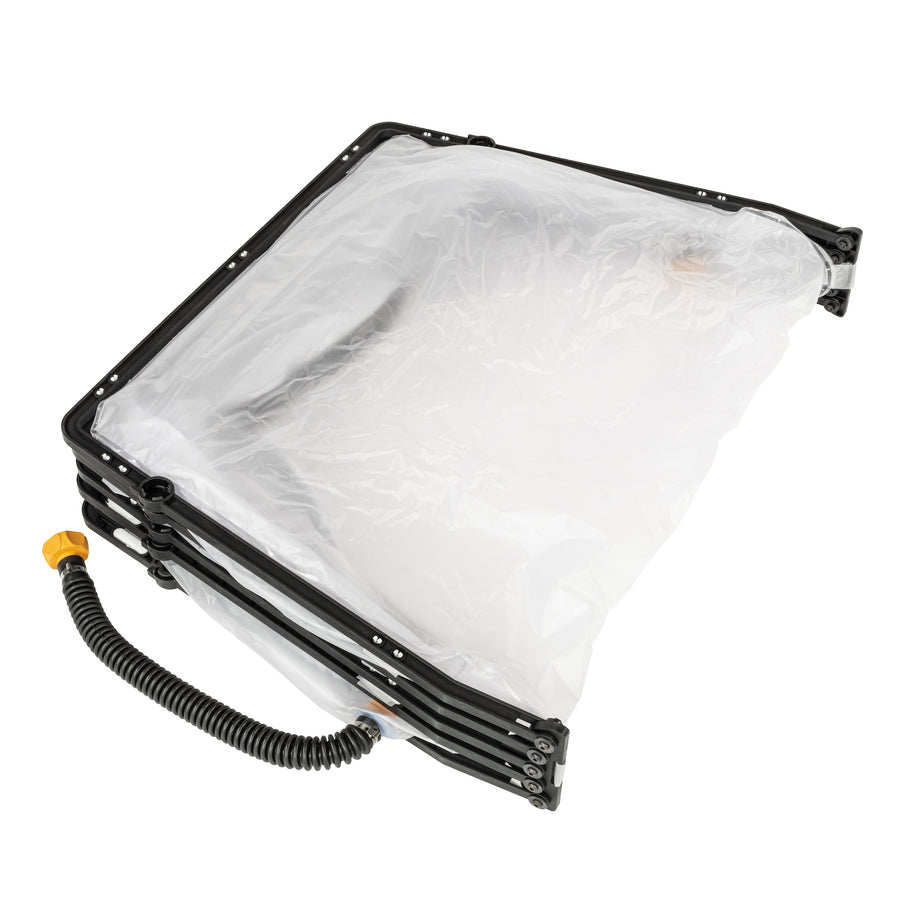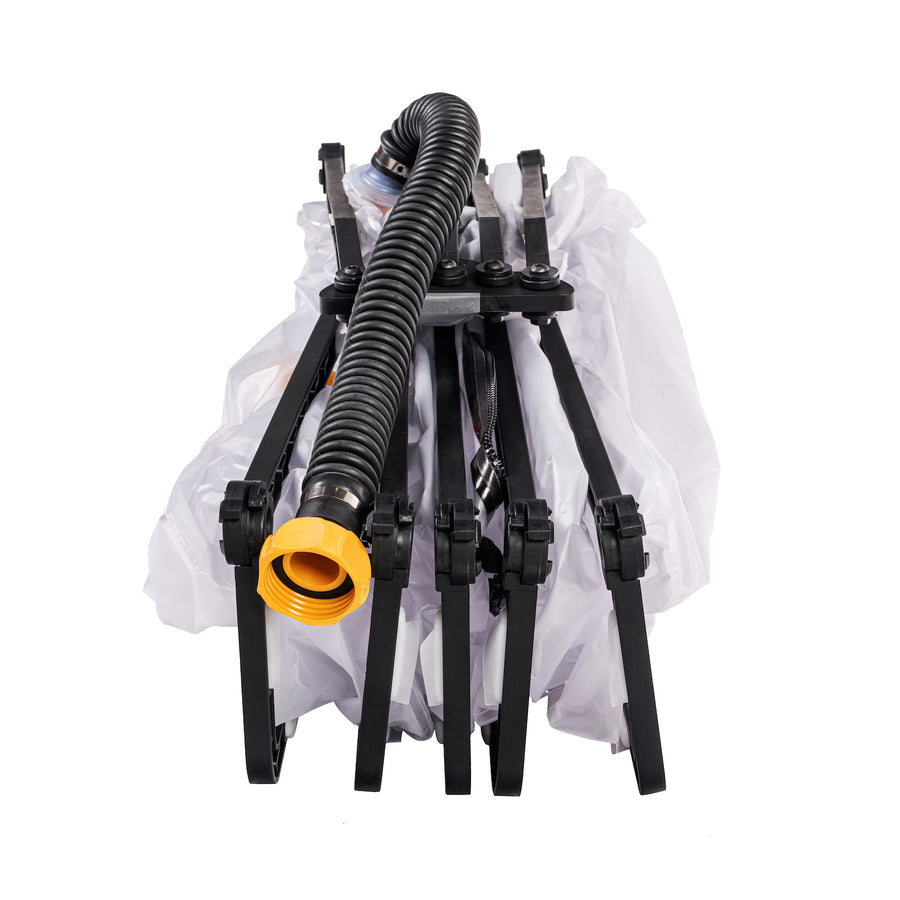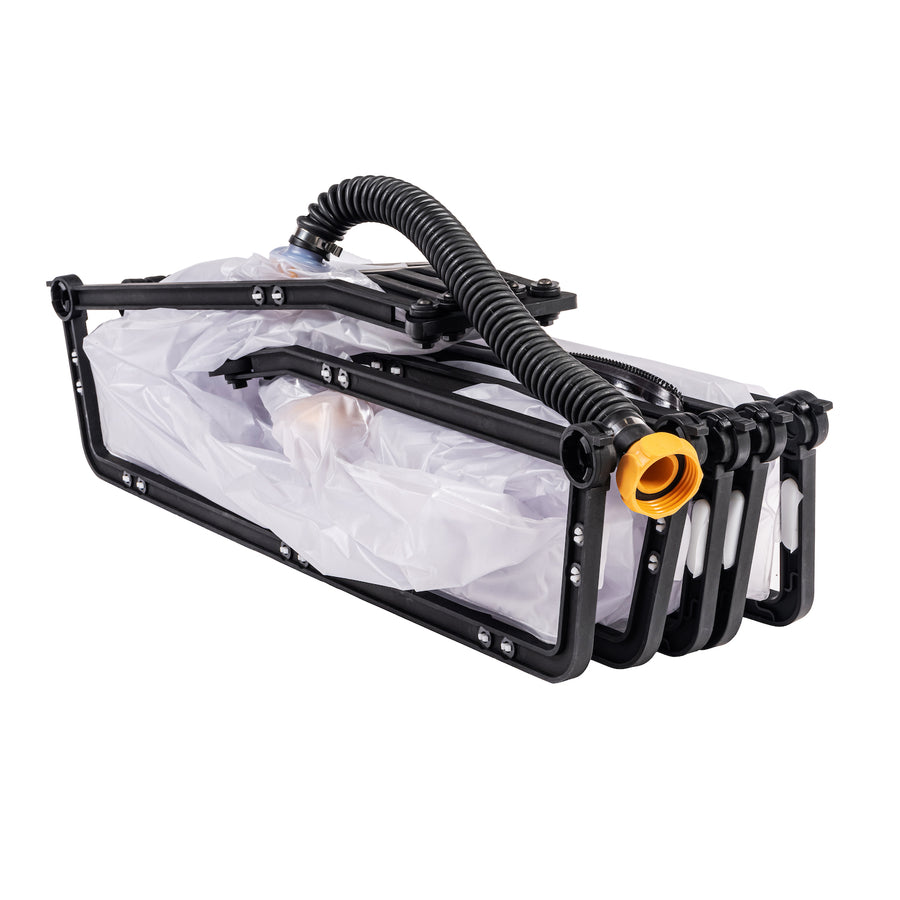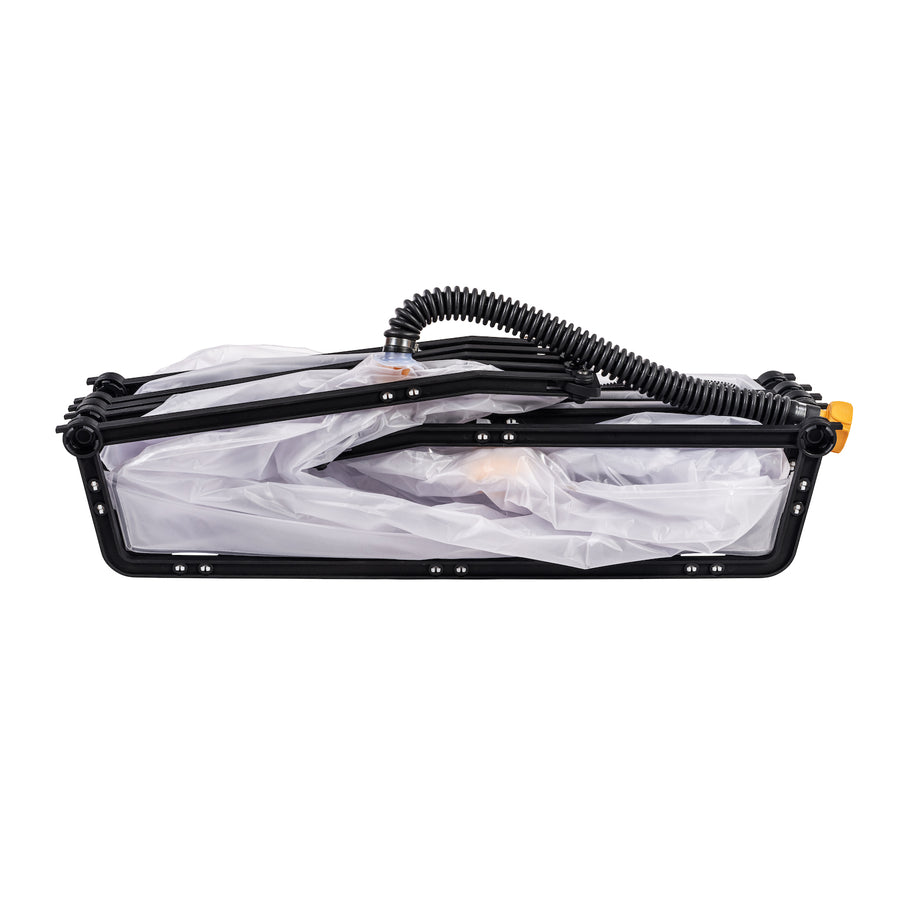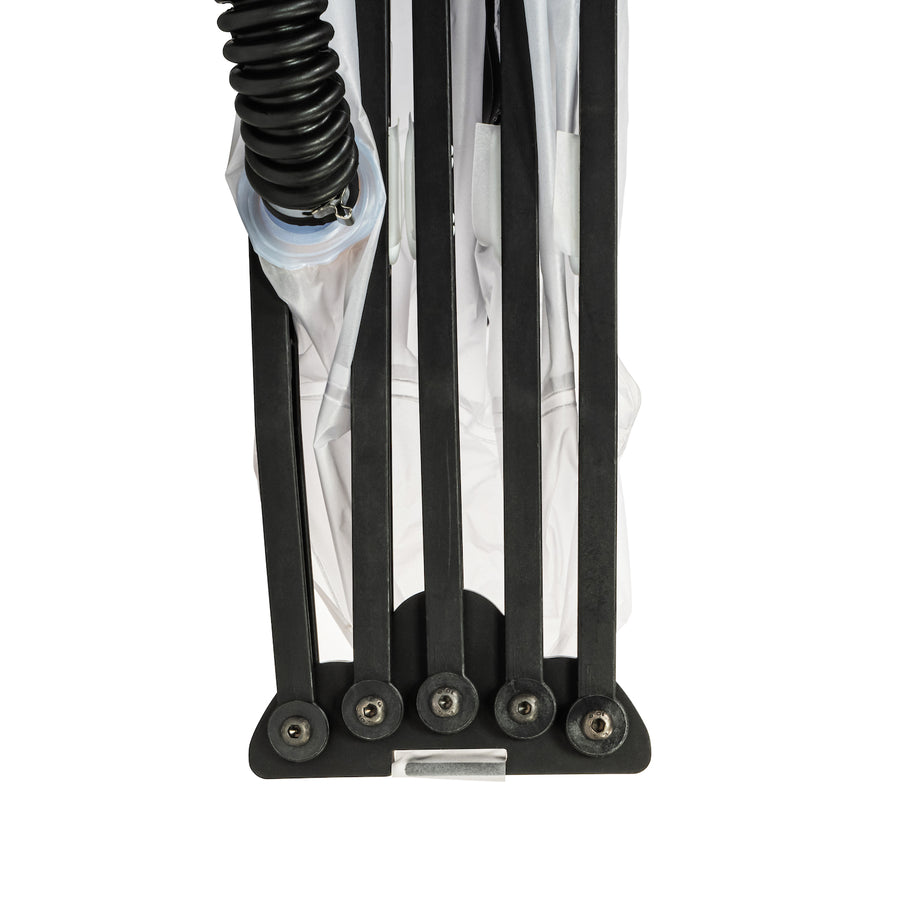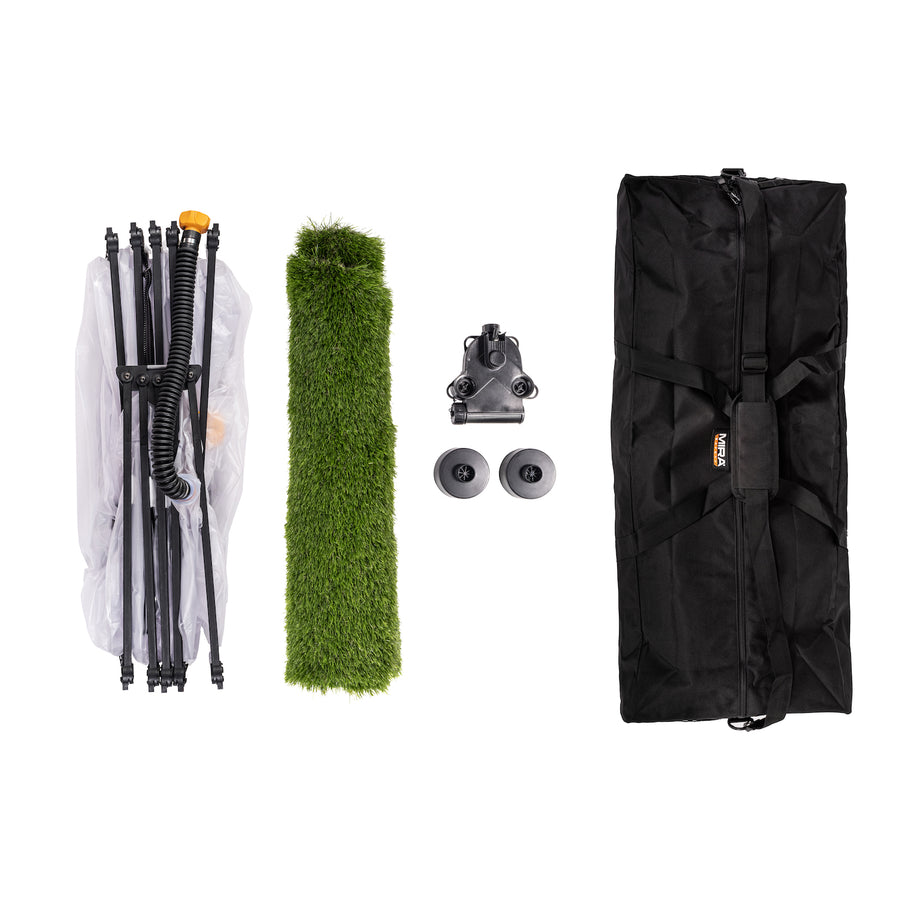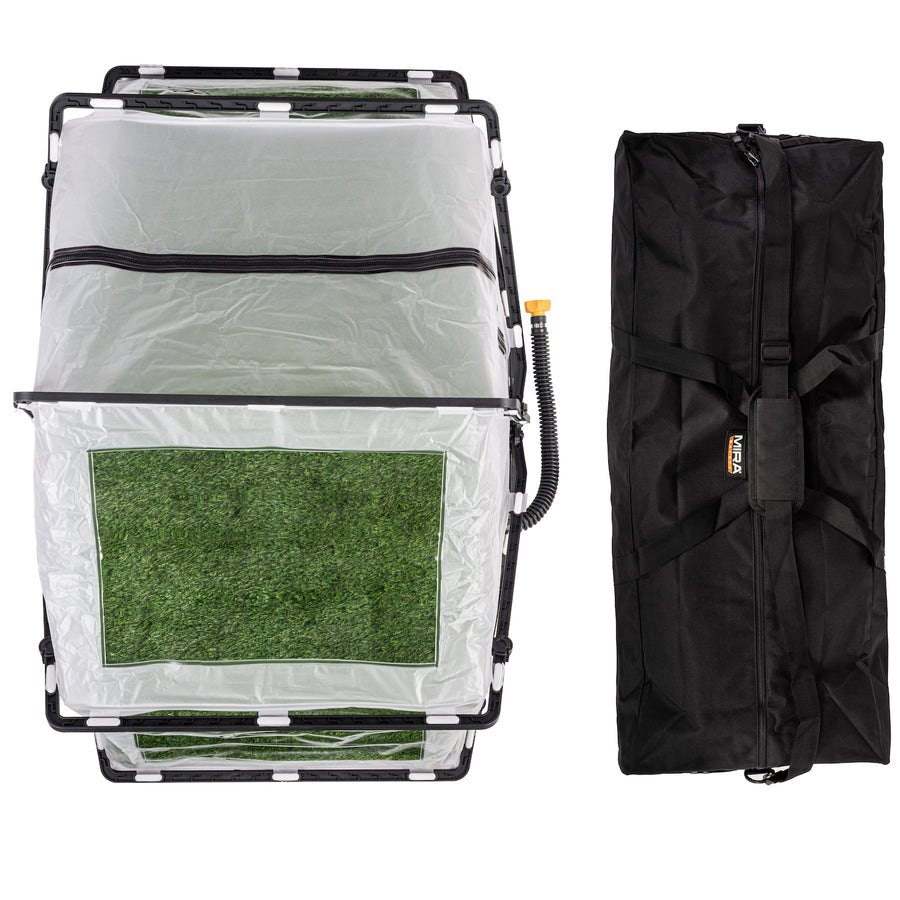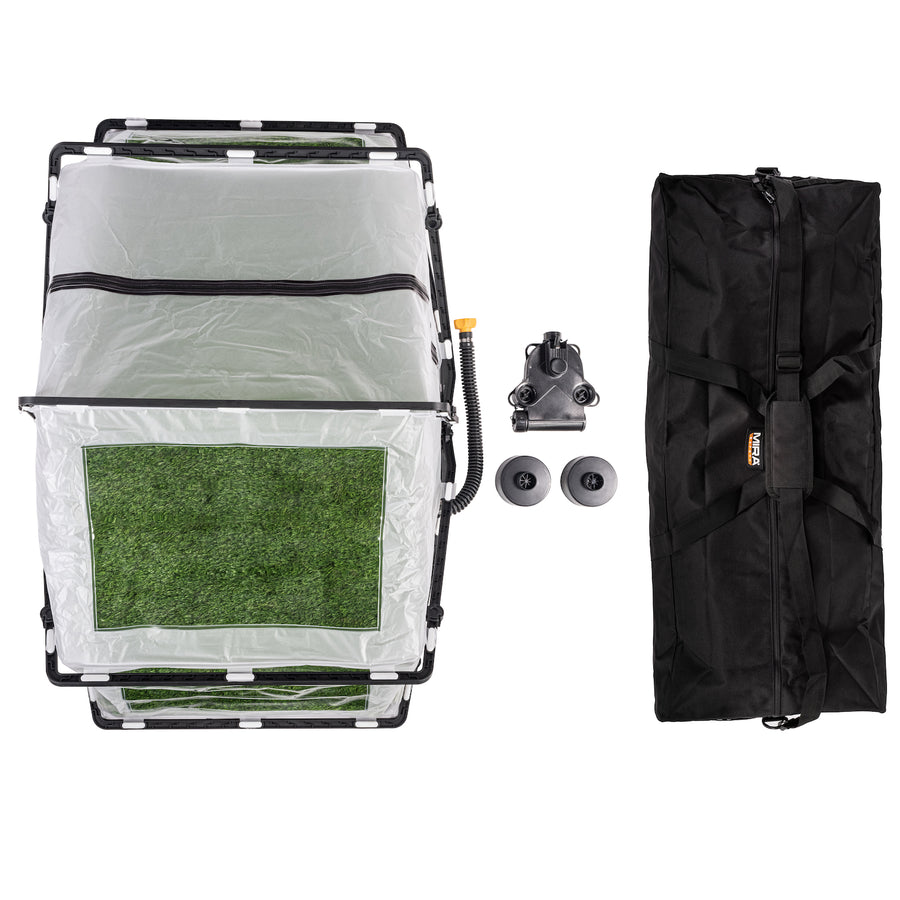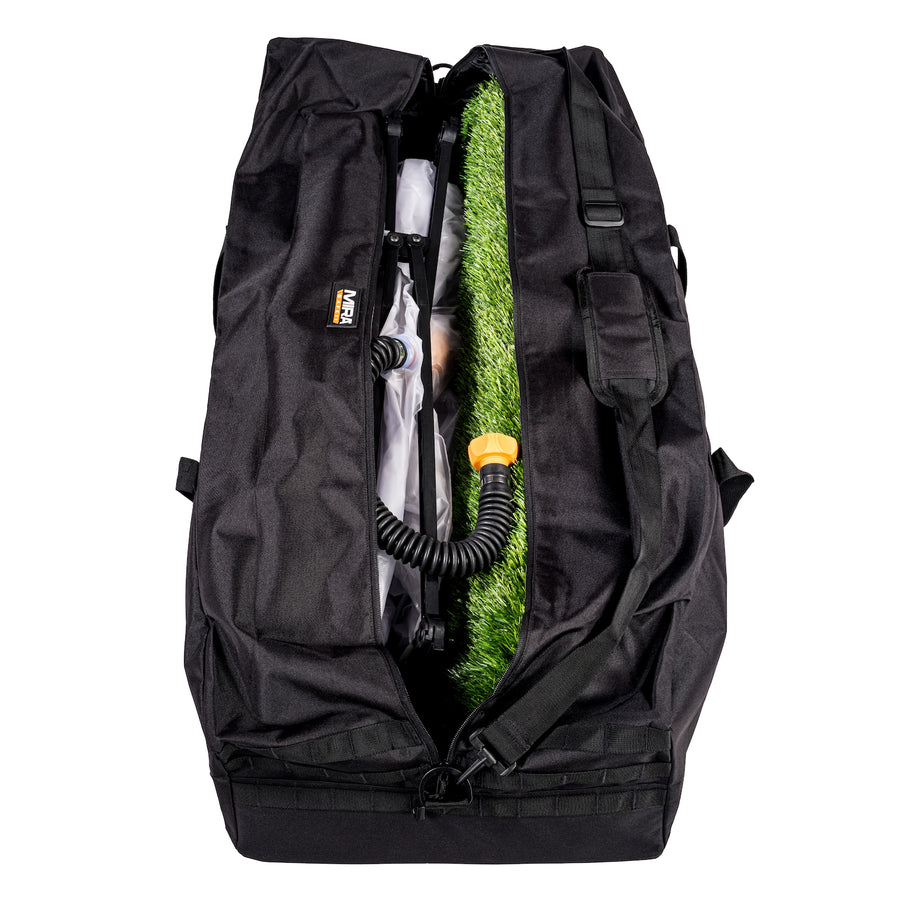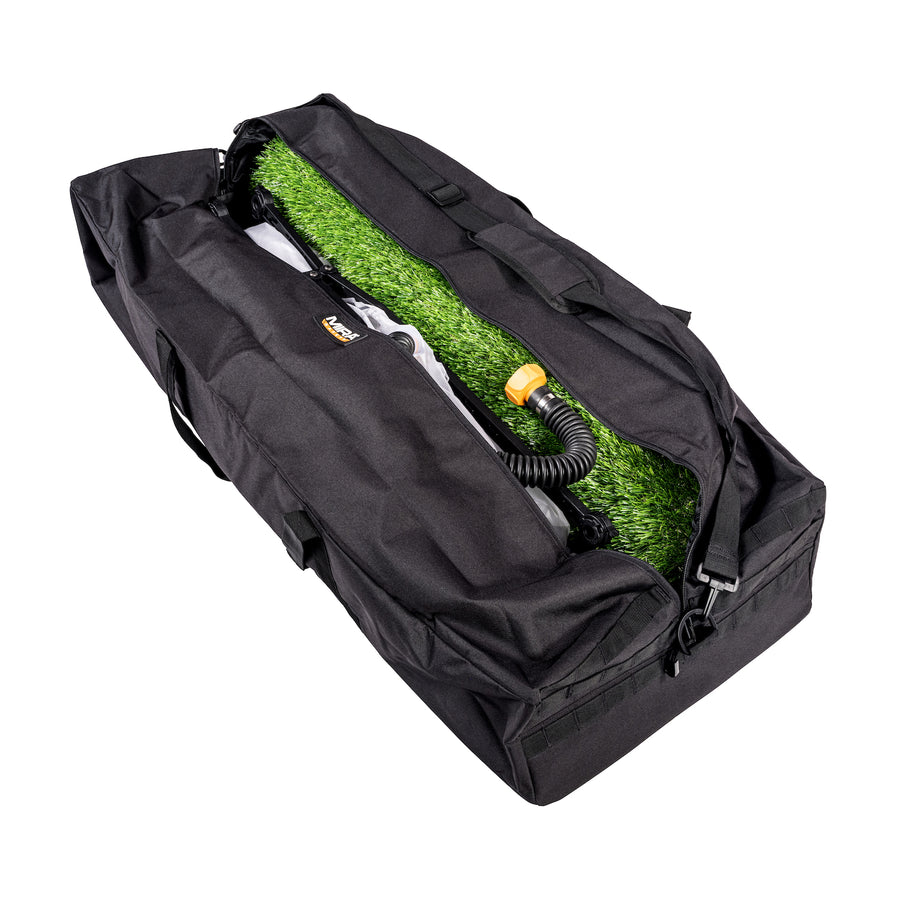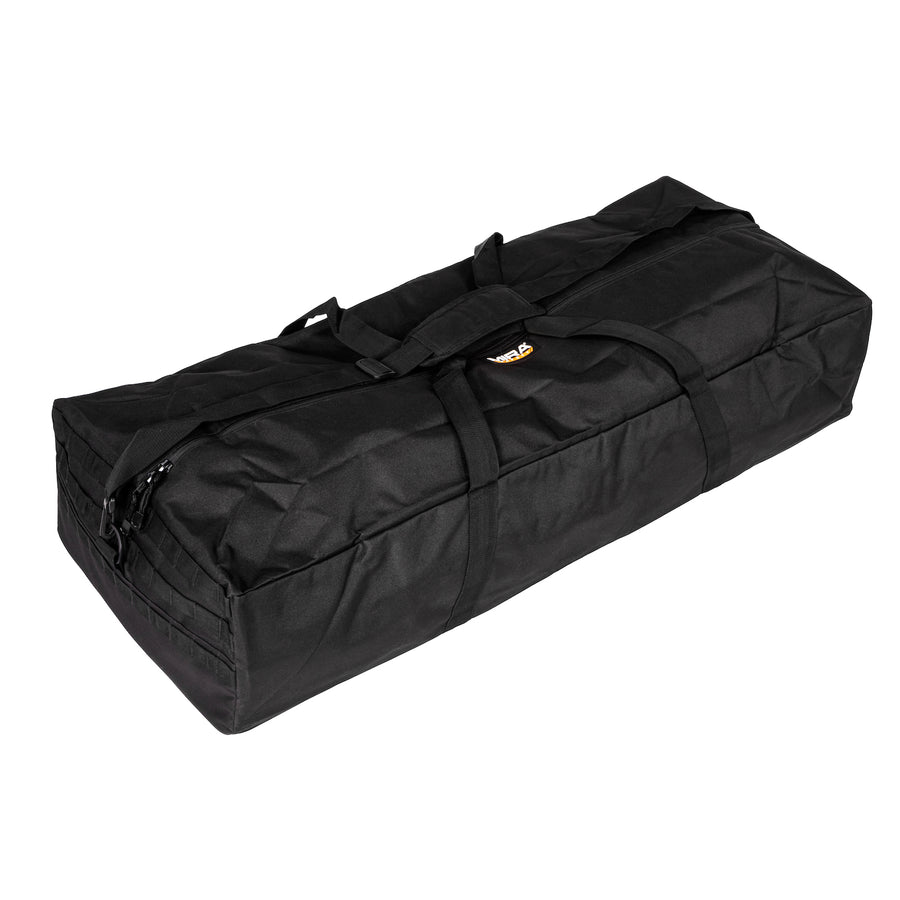MIRA Safety First Breed Collapsible CBRN Animal Ark® Dog Gas Mask
- The only enclosure system that provides comprehensive CBRN protection for a variety of household pets
- Collapsible construction allows for accessible storage options and ease of transport
- 15 year shelf life for long term usage
First Breed Collapsible CBRN Animal Ark®
OUR PRODUCTS ARE TRUSTED BY PROFESSIONALS ALL OVER THE GLOBE
We have established firm relationships with agencies worldwide and are deployed by:
If it doesn't fit, we will acquit
Free exchanges
Free shipping for
all U.S. orders
The MIRA Safety First Breed Collapsible CBRN Animal Ark® (Ark for short) is a reusable dome designed to protect your beloved dogs (and other pets) from exposure to hazardous chemical and biological warfare agents, radioactive particles, and even the risk of smoke inhalation.
The Ark is effectively a “dog gas mask,” which deploys in seconds, folds flat, stores easily, and uses a PAPR (powered air-purifying respirator) to create a compact, protective enclosure for your cherished dog.
Key Features of the Ark:
- Rugged laminate-230 construction with reinforced seams for durability, providing more than 6 hours of resistance to blister agents
- Works as a positive pressure system in conjunction with the MB-90 PAPR (sold separately and required for operation)
- The Ark is effectively a “dog gas mask,” providing a constant stream of filtered air into the spacious 14ft3 interior
- Provides enough space for your dog's food, water, and toys
- Fully translucent and transparent construction to keep a close eye on your pet
- Fits a variety of small animals up to a total of 10 kilograms (22 lb)
- Can be mounted on a stroller, wagon, sled, or a pickup truck bed for easy transport
- Folds into a compact shape for easy storage
- 15-year shelf life
- Made in Israel
The Ark is designed to give your pets the same life-saving protection you get from MIRA Safety Gas Masks. Traditionally, creating a dog gas mask has been challenging, considering pets have hair that prevents a tight seal.
Beyond that, pets are usually skittish during emergencies, presenting an additional challenge when trying to keep a device on the pet.
Through several years of research and development, the Ark was born as a practical solution for many types of pets instead of creating separate devices for each one.
With a lightweight, military-grade plastic frame and spacious interior, it uses the MB-90 PAPR (sold separately) and a set of 40mm NATO filters for up to 12 hours of continuous use on one set of 8 AA batteries.
Dogs and cats are the most popular pets in the US, but the Ark can protect almost every other pet too, from rabbits to snakes and bearded dragons. We recommend placing any existing habitat for rodents and reptiles inside the Ark (as they can be more sensitive to environmental conditions).
Whether your goal is to prepare for potential nuclear conflict or just having a pet-safe gas mask to protect your family dog from the smoke of wildfire season, this is a perfect choice.
The Ark can be stored in its original packaging for up to 15 years and deployed in minutes to protect your animals comfortably.
Technical Data:
Kit Dimensions (in duffle bag): 42" (L) x 16.5" (W) x 8" (H)Assembled Ark Dimensions: 53" (L) x 33" (W) x 26" (H)
Weight of Complete Kit: 19lb
Size: 14ft3, (designed to fit one small/medium dog or two cats up to 22lb total)
Material: Four-layer laminate-230 and military-grade carbon plastic
Mustard Liquid Penetration: >6 Hours
Included in Standard Kit:
- First Breed Collapsible CBRN Animal Ark®
- Artificial Grass
- Storage Duffle Bag
- Instruction Manual
Included in Deluxe Kit:
- First Breed Collapsible CBRN Animal Ark®
- Artificial Grass
- Storage Duffle Bag
- Instruction Manual
- MB-90 PAPR
- 40mm hose
- Mounting straps and harnesses
- (2) NBC-77 SOF Filters
STORAGE:
The Ark (excluding the PAPR and associated filters, which may have unique storage requirements) can be stored in its original packaging in a dark, cool, and dust-free environment free from sudden temperature changes. The storage room should be ventilated regularly. Temperatures may vary between -10°C and 50°C with relative humidity up to 80%. The stored Ark should not be exposed to radiant heat or sunshine. Fuels, solvents, lubricants, and other inflammable substances, including chemicals, must not be stored with Ark enclosures.
Moreover, do not store the enclosure with or near any electrical machines or appliances that produce electric sparks or discharges during operation (ozone creation). Failure to properly store this product may reduce its effective shelf life.
IMPORTANT Considerations:
- The Ark is NOT intended for children or small humans.
- Requires a 40mm threaded PAPR to function (the MB-90 from MIRA Safety is highly recommended as this unit was used throughout all laboratory testing).
- The Ark is designed to protect small animals (22lb or under), including dogs, cats, birds, rabbits, rodents, ferrets, and reptiles. We have not tested the Ark with larger animals, so we cannot guarantee safe operation. Considering larger animals are usually stronger, they may try to escape using force, compromising the seal of the Ark and causing a leak.
- For animals with sharp claws, we recommend placing them into an enclosure inside of the Ark (such as a kennel, crate, etc).
